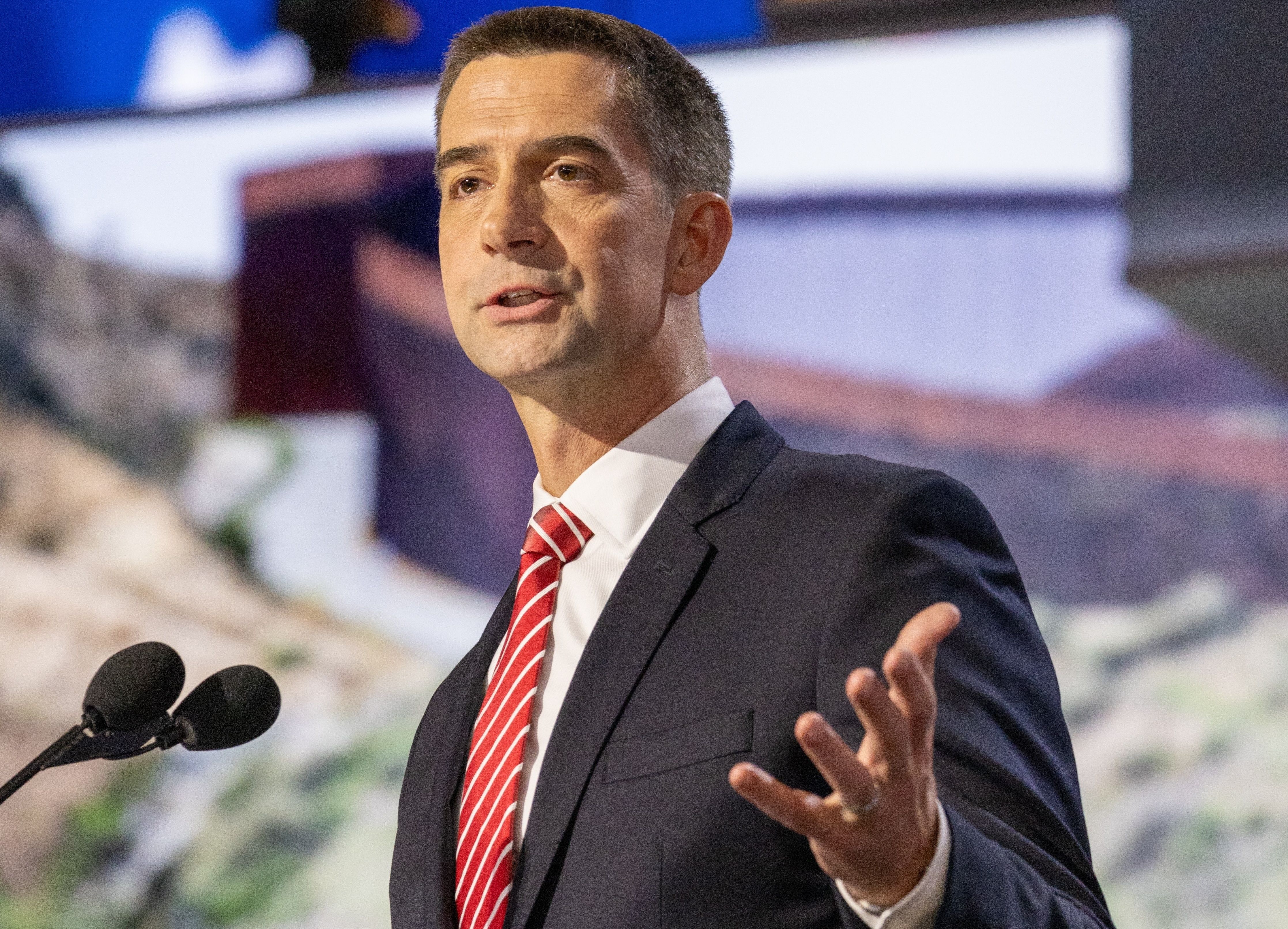A prominent Republican Iran hawk suggested this week that he may be willing to accept a deal with the United States in which Iran maintains its civilian nuclear program, a sign that hardline opposition to President Trump’s negotiations with Tehran may be softening.
“A good deal is a deal that cuts off all of Iran’s paths to a nuclear bomb, that includes all of their highly enriched uranium and their advanced centrifuges,” Sen. Tom Cotton (R-Ark.) said during an interview with conservative radio host Hugh Hewitt. “They don’t need those centrifuges or highly enriched uranium for civilian nuclear power. There are a couple dozen countries around the world that have civilian nuclear power that don’t enrich their own uranium.”
Focusing solely on “highly enriched uranium” — which is needed for building nuclear weapons — and not “low enriched uranium,” which is for civilian nuclear power, is a significant shift for the Arkansas Republican and a slight move away from many Iran hawks who say Trump should not accept an agreement that allows Iran to have a civilian nuclear program at all.
Cotton has made a career out of promoting maximalist demands on Iran, opposing negotiations and calling for war. In fact, just two weeks ago, Cotton said “the only solution is Iran completely dismantling its program, or we should do it for them.”
Indeed, pushing for Trump to only accept a deal that completely dismantles Iran’s nuclear program has been the top talking point among Iran hawks since negotiations began just weeks ago.
“Dismantle all the infrastructure of Iran’s nuclear program,” Israeli Prime Minister Benjamin Netanyahu said recently. “That is a deal we can live with.”
The Foundation for the Defense of Democracies — a Washington think tank that advocates for Israel, pushes war with Iran and was instrumental in Trump’s withdrawal from Obama’s Iran nuclear deal in 2018 — has been peddling this line as well.
“With Tehran at its weakest point in decades,” an FDD “policy alert” stated earlier this month, “the administration must avoid past mistakes and insist that no deal be made unless Iran completely and verifiably dismantles its nuclear program.”
Experts more supportive of Trump's outreach to Iran say Cotton's recent comments have potential to help the president get a good deal.
"Senator Tom Cotton’s recent remarks on Iran represent a notable shift in the debate that maintains a hardline stance while introducing a more strategic path forward," said Center for International Policy senior fellow Sina Toossi. "Cotton has always been one of the toughest voices on Iran, and he’s making it clear that Iran must never be allowed to have highly enriched uranium or advanced centrifuges. He’s right. These aren’t needed for a peaceful, civilian nuclear program. Drawing that line is common sense, rooted in U.S. security interests."
Toossi added that Trump is in a unique position to settle the nuclear dispute with Iran and avoid dragging the U.S. into another Middle East war. "Cotton appears to be moving away from that maximalist position, which could signal weakening domestic opposition to any deal Trump makes with Iran," he said.
A spokesperson for Cotton said the senator "has been very clear that the terrorist regime of Iran must dismantle its entire nuclear program."

















